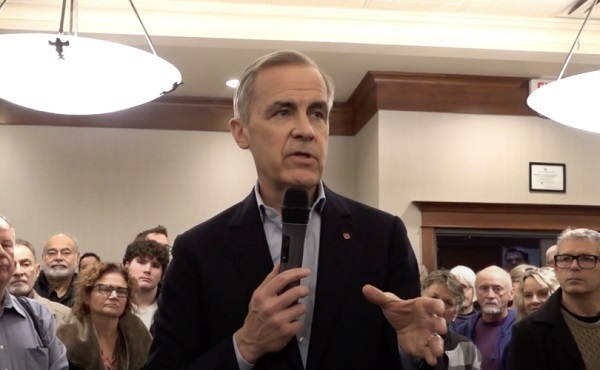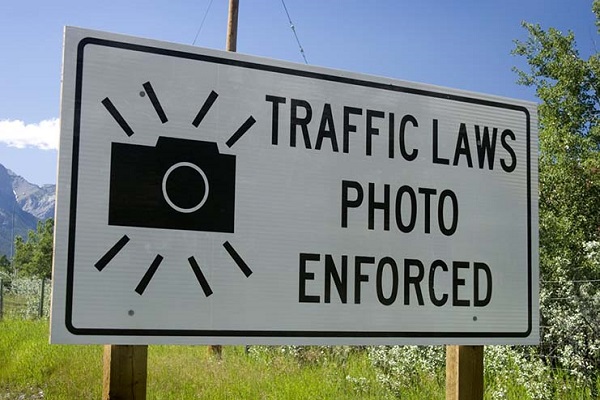MAiD
Canada’s devastating assisted suicide regime is tearing families apart

From LifeSiteNews
The father stated that his daughter’s ‘capacity to consent to [assisted suicide] is impacted by mental illness’ and that she had likely been ‘unduly influenced by a third party.’
Last year, I noted in First Things that of all the perverse lies told by proponents of euthanasia, one of the worst is their claim that it reduces suffering in society. The precise opposite is true. We have seen this in Canada time and again; heartbroken relatives reaching out to the media to explain how the assisted suicide of a loved one has left them destroyed. Each person who dies at the end of a doctor’s needle leaves loved ones behind; many of them are deeply traumatized by the experience.
Gary Hertgers of British Columbia found out that his sister, Wilma, had died by lethal injection when her building manager called him to inform him that the coroner had just left her apartment. A doctor told the Globe and Mail that he still has nightmares about his father’s euthanasia death, which the family opposed. Two sisters in B.C. found out that their mother had died through euthanasia by text message. Another mother whose troubled son was approved for euthanasia only managed to have that approval rescinded by launching a media campaign.
The CBC is now reporting on a similar story. A desperate father has requested that Court of King’s Bench Justice Colin Feasby in Alberta examine the process that led to two of three doctors approving his daughter for euthanasia (which is referred to in Canada as “MAiD,” or medical assistance in dying). His daughter, who suffers from autism, is only 27 years old. The court has issued a publication ban to protect the identities of the family members and the doctors involved; CBC identified the father as “W.V.” and the daughter as “M.V.”
According to court proceedings, M.V. was approved for euthanasia in December – signoff by two doctors is required to meet the threshold. She was given the date of February 1 to receive the lethal injection. M.V. still lives with her father, who managed to obtain a temporary injunction halting the impending euthanasia (the CBC reported that this “prevent(ed) M.V. from accessing MAiD”) the day before her scheduled death. Her father argued to the court that “M.V. suffers from autism and possibly other undiagnosed maladies that do not satisfy the eligibility criteria for MAiD.”
The daughter’s lawyer, Austin Paladeau, countered by arguing that M.V. is “not trying to withhold or hide anything” by her failure to supply medical documents justifying euthanasia, but that “She’s saying ‘it’s none of (W.V.’s) or the public’s business, I’ve been approved by two doctors, I am entitled to this and, court, it’s none of your business either.’”
Her father, who still cares for her, feels differently; her death is very much his business. His lawyer, Sarah Miller, argued in a brief: “As it stands, AHS (Alberta Health Services) operates a MAiD system with no legislation, no appeal process and no means of review.”
Miller is asking the Calgary judge for a judicial review of M.V.’s approval for euthanasia, and W.V. submitted a 2021 report to the court from a neurologist who stated that M.V. was “normal”; the father also stated that M.V.’s “capacity to consent to MAiD is impacted by mental illness” and that she had likely been “unduly influenced by a third party.” M.V.’s lawyer argued that the issue at stake was medical autonomy itself, stating:
He’s at risk of losing his daughter and while this is sad, it does not give him the right to keep her alive against her wishes. One of the real challenging parts of this process… is what’s actually happening. I completely understand (W.V.) does not want his daughter to die… I represent (M.V.), I don’t want her to die either but that doesn’t play into account here. Even though we have or may have very strong views… at the end of the day this is (M.V.’s) decision.
The judge is grappling with the case. “As a court, I can’t go second guessing these MAiD assessors… but I’m stuck with this: the only comprehensive assessment of this person done says she’s normal,” Feasby stated. “That’s really hard.” He called the case a “vexing” one and, according to the CBC, “reserved his decision on whether he’ll set aside the temporary injunction preventing M.V. from accessing MAiD… the other part of his decision will deal with whether a judicial review will take place, which would examine how doctors came to sign off on M.V.’s MAiD application.”
I hope Feasby makes the right decision. If he does not, a father will face the horror of a doctor coming into his home and giving his daughter a lethal injection against his will – with the entire force of the state endorsing the doctor’s right to do so. At the end of the day, this case is vexing – but it really isn’t hard.
Carbon Tax
Mark Carney has history of supporting CBDCs, endorsed Freedom Convoy crackdown

From LifeSiteNews
Carney also said last week that he is willing to use all government powers, including “emergency powers,” to enforce his energy plan if elected prime minister.
World Economic Forum-linked Liberal Party leadership frontrunner Mark Carney has a history of supporting central bank digital currencies, and in 2022 supported “choking off the money” donated to the Freedom Convoy.
In his 2021 book Value(s), Carney said that the “future of money” is a “central bank stablecoin, known as a central bank digital currency or CBDC.”
He noted in his book that such a currency would be similar to current cryptocurrencies such as Bitcoin, but without the private nature afforded to it by its decentralization.
“It is simply untenable in democracies that the core of the monetary system could be based on forms of electronic private money whose creators control large blocks of the currency, like Bitcoin,” he wrote. “Cryptocurrencies are not the future of money.”
Carney noted that a CBDC, if “properly designed,” could serve “all the functions to which private cryptocurrencies and stablecoins aspire while addressing the fundamental legal and governance issues that will, in time, undermine those alternatives.”
Expanding on his worldview in relation to CBDCs, Carney suggested that “fear” can be taken advantage of to shape the future of money.
“With fear on the march, people were willing to surrender to Hobbes’ ‘Leviathan’ such basic rights as the freedom to leave their homes,” he wrote. “And so it is with money. People will support the delegation to independent central banks of the tough decisions that are necessary to maintain the value of money provided the authorities deliver monetary and financial stability.”
Some Canadians are alarmed by the prospect of CBDCs, a fear that only worsened after the Liberals under Prime Minister Justin Trudeau froze hundreds of bank accounts it deemed were importantly linked to the 2022 Freedom Convoy.
During the Freedom Convoy, Carney wrote in an op-ed for the Globe and Mail, “Those who are still helping to extend this occupation must be identified and punished to the full force of the law,” adding that “Drawing the line means choking off the money that financed this occupation.”
Carney is a former head of the Bank of Canada and Bank of England. His ties to globalist groups have led to Conservative Party leader Pierre Poilievre calling him the World Economic Forum’s “golden boy.”
In addition to his comments on CBDCs, Carney has a history of promoting anti-life and anti-family agendas, including abortion and LGBT-related efforts. He has also previously endorsed the carbon tax and even criticized Trudeau when the tax was exempted from home heating oil to reduce costs for some Canadians.
Carney also said last week that he is willing to use all government powers, including “emergency powers,” to enforce his energy plan if elected prime minister.
The Liberal Party of Canada will choose its next leader, who will automatically become prime minister, on March 9, after Prime Minister Justin Trudeau announced that he plans to step down as Liberal Party leader once a new leader has been chosen.
In contrast to Carney, Poilievre has promised that if he is elected prime minister, he would stop any implementation of a “digital currency” or a compulsory “digital ID” system.
When it comes to a digital Canadian dollar, the Bank of Canada found that Canadians are very wary of a government-backed digital currency, concluding that a “significant number” of citizens would resist the implementation of such a system.
MAiD
Nearly half of non-terminally ill Canadians who choose euthanasia say they are lonely

From LifeSiteNews
Of the 662 people who were not in danger of death but succumbed to medical assistance in dying last year, 47.1 percent cited as reasons for wanting to die ‘isolation or loneliness.’
Official government data shows that about half of Canadians who are not terminally ill yet wanted to end their lives via state-sanctioned assisted suicide did so last year because they said they were lonely.
According to data published by Health Canada on December 11 in its fifth annual report on medical assistance in dying (MAID), 15,342 people were approved for and died by euthanasia in 2023.
A total of 14,721 of these deaths were in cases where illness or disability were likely down the road or considered “reasonably foreseeable.” These are called Track 1 MAiD deaths.
However, 662 deaths were people who were not dying. Of these Track 2 deaths, 47.1 percent cited as reasons for wanting to die “isolation or loneliness.” By comparison, about 21.1 percent of Track 1 deaths reported the same feelings for wanting to die by doctor-led suicide.
The report stated that “social isolation and loneliness are shown to have a serious impact on physical and mental health, quality of life, and longevity.”
Of the Track 2 deaths, 35.7 percent lived alone, compared with 30.2 percent of Track 1 deaths. Of Track 1 deaths, the average age was 77.7 years. The average age of Track 2 deaths was 75.
Of note is that this year’s Health Canada report on MAiD is the first to include so-called “verbal” requests from individuals as official. Previously, those who wanted to die via assisted suicide had to submit a form to Health Canada in order to be officially recorded as a request to die by suicide.
Under Prime Minister Justin Trudeau, whose Liberal government legalized MAiD in 2016, the deadly program has continued to relax its rules on who is eligible for death.
As reported by LifeSiteNews, 1 in 20 Canadian deaths in 2023 came from assisted suicide.
Instances of people being offered MAiD as a solution to their health issues have become commonplace in Canada, as reported by LifeSiteNews.
Last week, LifeSiteNews reported how a senior Canadian couple said that a hospice care center presented euthanasia to one of them as an option because they could not afford increased care costs on their fixed income.
Canadian pro-life leaders have criticized the Trudeau government’s continued push for expanding MAiD.
Indeed, most Canadians fear the nation’s euthanasia regime unfairly targets those who are financially and socially vulnerable while still supporting the immoral practice in general.
In 2021, the program expanded from killing only terminally ill patients to allowing the chronically ill to qualify. Since then, the government has sought to include those suffering solely from mental illness.
The number of Canadians killed by lethal injection under the nation’s MAiD program since 2016 stands at close to 65,000, with an estimated 16,000 deaths in 2023 alone. Many fear that because the official statistics are manipulated the number may be even higher.
Canada had approximately 15,280 euthanasia deaths in 2023.
-

 Business1 day ago
Business1 day agoFeds Spent Roughly $1 Billion To Conduct Survey That Could’ve Been Done For $10,000, Musk Says
-

 2025 Federal Election2 days ago
2025 Federal Election2 days agoChinese Gangs Dominate Canada: Why Will Voters Give Liberals Another Term?
-

 Alberta16 hours ago
Alberta16 hours agoPhoto radar to be restricted to School, Playground, and Construction Zones as Alberta ends photo radar era
-

 Health19 hours ago
Health19 hours agoRFK Jr. Drops Stunning Vaccine Announcement
-

 Alberta11 hours ago
Alberta11 hours agoProvince announces plans for nine new ‘urgent care centres’ – redirecting 200,000 hospital visits
-

 Business8 hours ago
Business8 hours agoElon Musk, DOGE officials reveal ‘astonishing’ government waste, fraud in viral interview
-

 Energy2 days ago
Energy2 days agoEnergy, climate, and economics — A smarter path for Canada
-

 2025 Federal Election2 days ago
2025 Federal Election2 days agoFool Me Once: The Cost of Carney–Trudeau Tax Games






